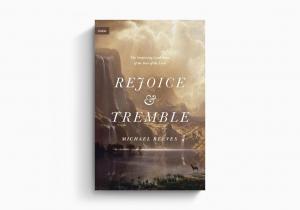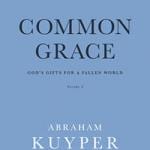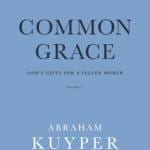
Do you fear God? That’s an uncommon question these days as we have increasingly emphasized the parts of the Bible that focus on God’s love, compassion, gentleness, and forgiveness. And this is not just something done by the doctrine-less theological liberals or mushy seeker-sensitive Evangelicals, even rigorous and theologically robust Evangelicals emphasize characteristics like gentleness and lowliness (and of course are not wrong to do so–these are Divine characteristics). However, this emphasis has increasingly been at the expense of the characteristics of God that inspire less warm and fuzzy feelings inside of us. Michael Reeves’s new book Rejoice and Tremble: The Surprising Good News of the Fear of the Lord is the beginning of a correction to this trend. The Lord is to be worshiped in His compassion and love and gentleness etc etc etc. But the Bible is clear that He is also to be feared. The Lord is compassionate and gracious, slow to anger and abounding in love. (Psalm 103:8) That He is ‘slow to anger’ doesn’t mean He never gets there. Likewise He is just (which is bad news for those of us who are sinners, i.e., all of humanity), jealous (which is bad news for those of us who are idolaters, again–everyone), vengeful (bad news for those of us who have offended God, = all of us), etc. Fear is an appropriate response from a fallen race.
But what kind of fear? And what does that mean for those of us whom God has forgiven, for whom the justice, wrath, jealousy, and vengeance of God have fallen on the cross? And how is that fear different from the fear that the rest of the world should experience (but often doesn’t, and won’t until standing before the throne of judgment)? This is the difference between what Reeves calls “sinful fear” and “right fear.” The former is a quivering fear that only dreads the pain and suffering that comes with deserved judgment. The latter is a sort of combination of awe at the Majesty of the Lord, gratitude for the work of Christ in our salvation, and the desire to obey that we feel towards a loving parent.
I’ll confess that this is a distinction I struggle with sometimes (or, you know, a lot of the time). And the guides offered in this book to help us sort them out aren’t terribly helpful. Reeves includes 10 questions from Bunyan intended to help us do some self-analysis when we experience sinful fear:
“Quest. 1: Do no these fears make thee question whether there was ever a work of grace wrought in thy soul?…
Quest. 2: Do not these fears make thee question whether ever thy first fears were wrought by the Holy Spirit of God?
Quest. 3: Do not these fears make thee question whether ever thou hast had, indeed, any true comfort from the Word and Spirit of God?
Quest. 4: Dost thou not find intermixed with these fears plain assertions that thy first comforts were either from thy fancy, or from the devil, and a fruit of his delusions?
Quest. 5: Do not these fears weaken thy heart in prayer?
Quest. 6: Do not these fears keep thee back from laying hold of the promise of salvation by Jesus Christ?
Quest. 7: Do not these fears tend to the hardening of thy heart, and to the making of thee desperate?
Quest. 8: Do not these fears hinder thee from profiting in hearing or reading of the Word?
Quest. 9: Do not these fears tend to the stirring up of blasphemies in thy heart against God?
Quest. 10: Do not these fears make the sometimes think that it is in vain for thee to wait upon the Lord any longer?”
The answer given to by the poor soul wrestling with fear to all of these questions is ‘yes’ (not included in the quote), to which Bunyan encourages a rejection of these fears as sinful and not the proper form of fear of God. However, I don’t know that fear of God works in such a clean-cut way. The problem is (at least for me), I give a mix of answers to these questions. To 1-4 and 6-7 I sometimes give a clear “yes”, but to 5 and 8 it’s a “sometimes”, and to 9-10 it’s a “no.” Fear is not a simple response, and can be a bundle of “right” and “sinful” that it is a challenge to sort out.
What’s more, the way sinful fear is describe in this book is accurate, I think, but it is also the case that such fear is used both in Scripture and historically as a means by which people are driven to God. The fear of hell and punishment has its place in theology, evangelism, and preaching. Yes, this fear should turn to joy on conversion and with sanctification (and Reeves includes a wonderful chapter on cultivating the right kind of fear), but right fear does not have to be the starting point.
Rejoice & Tremble, by contrast, is an excellent starting point when it comes to thinking rightly about the fear of the Lord.
Dr. Coyle Neal is co-host of the City of Man Podcast and an Associate Professor of Political Science at Southwest Baptist University in Bolivar, MO













